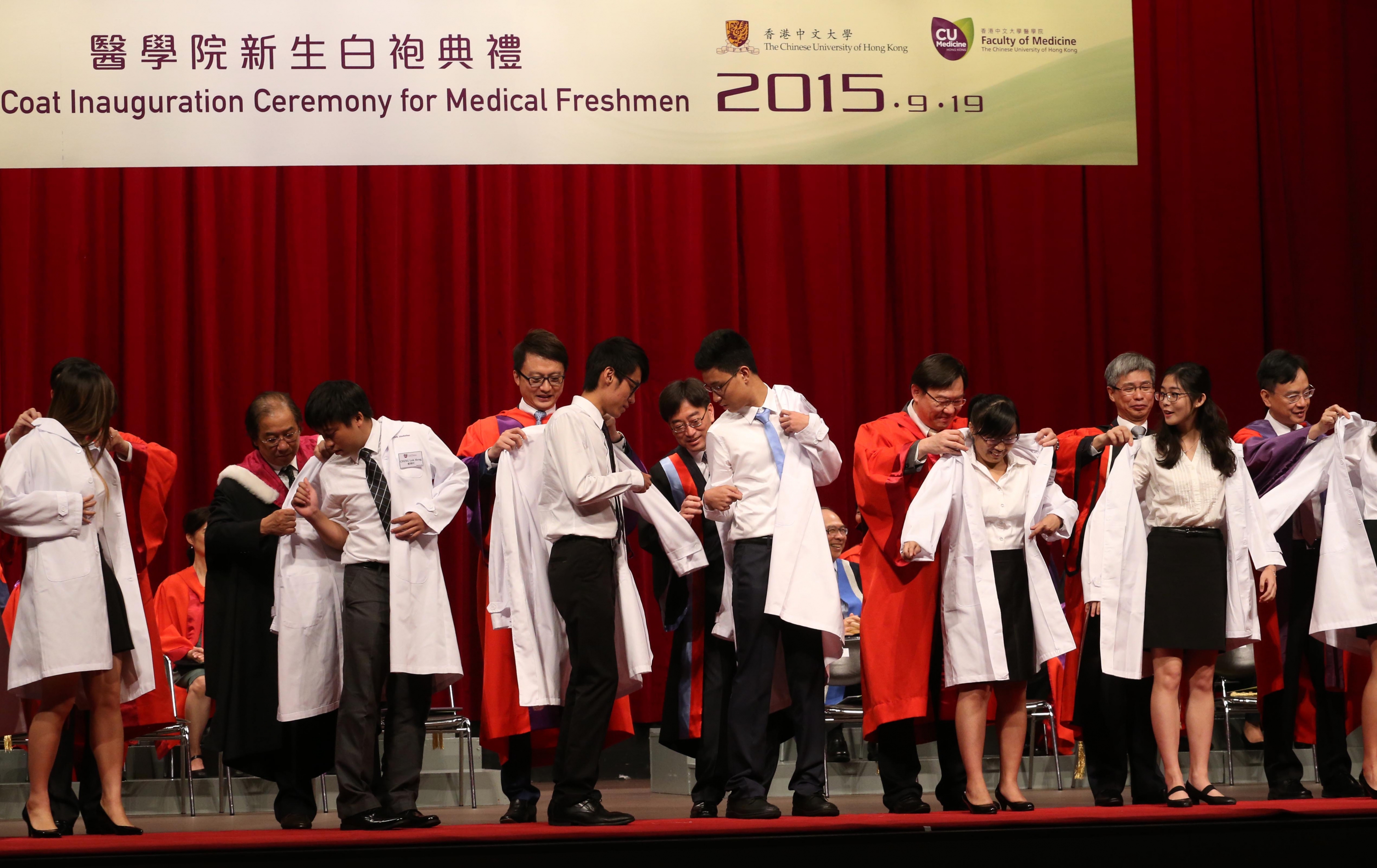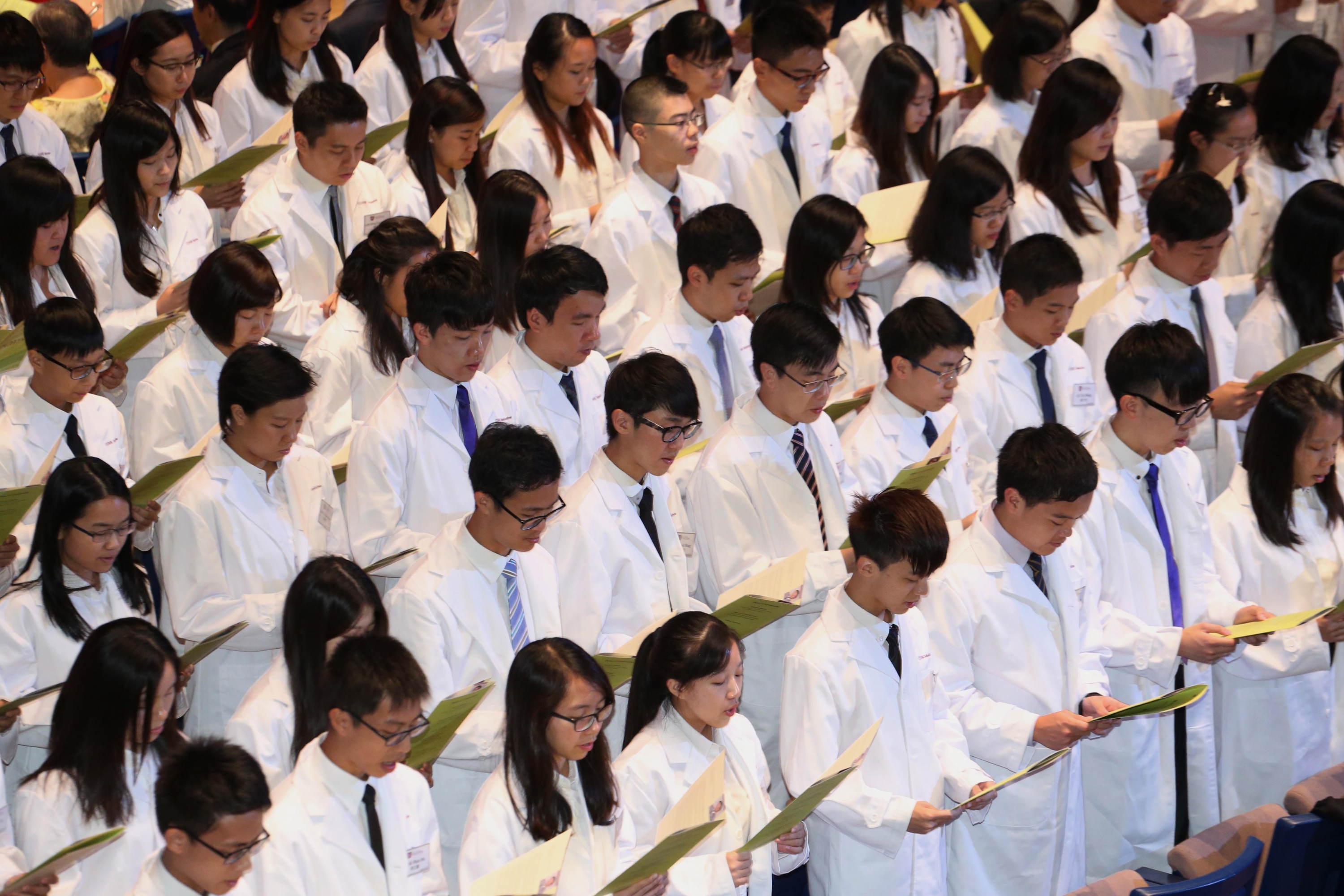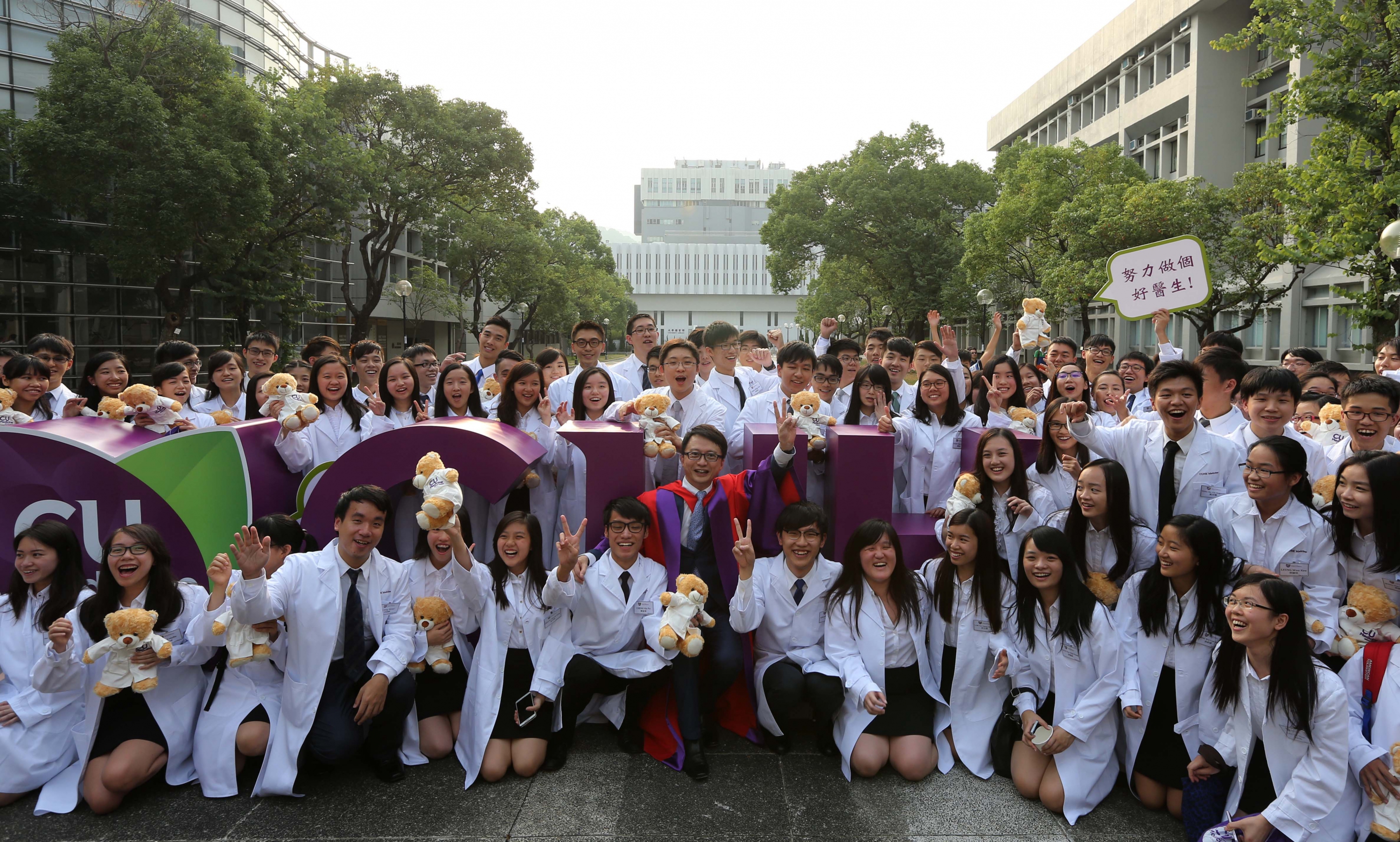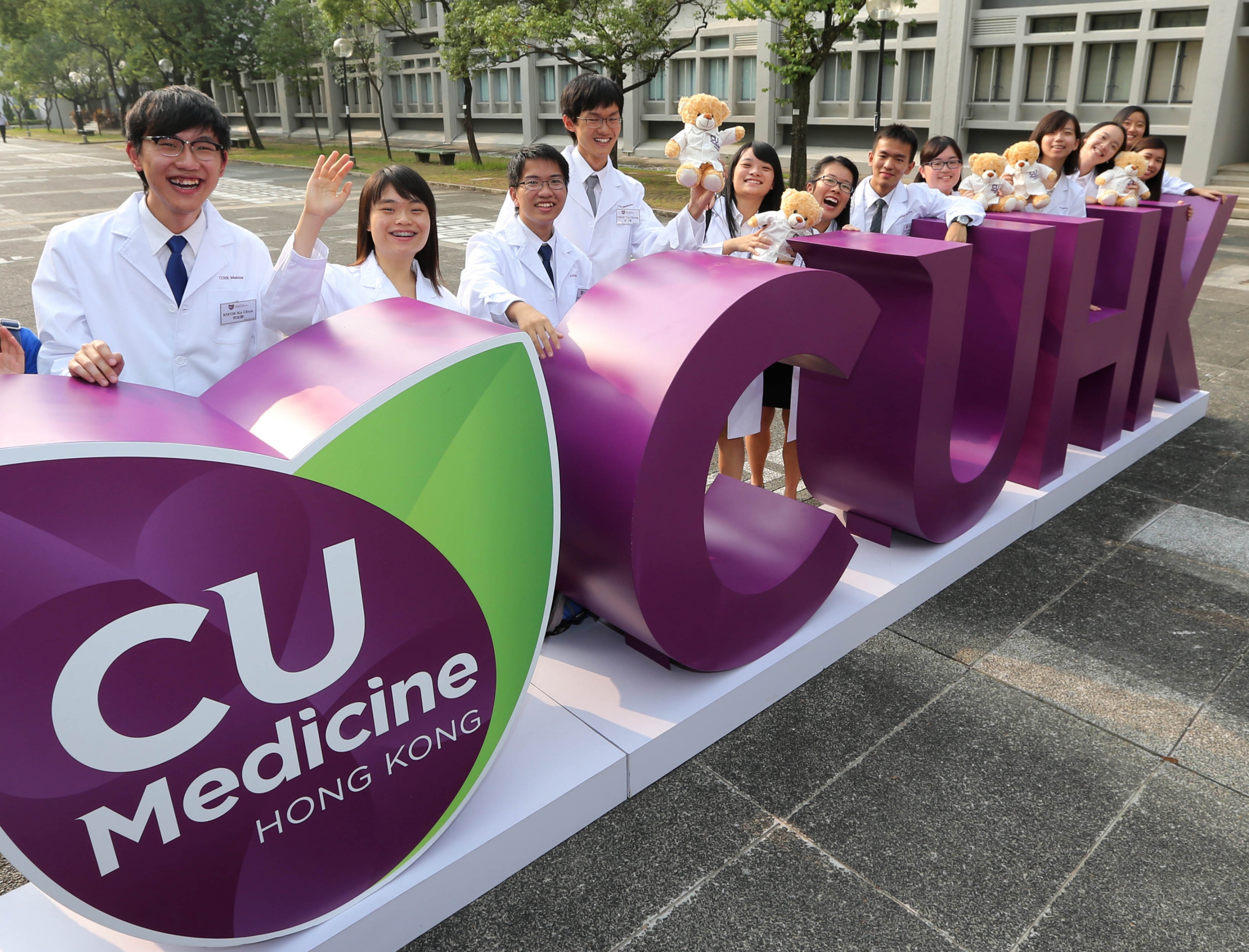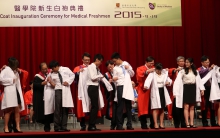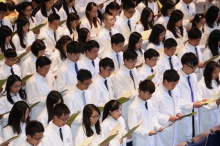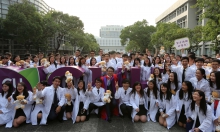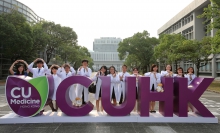CUHK
News Centre
CUHK Hosts White Coat Inauguration Ceremony for the Second YearReminding Medical Freshmen to be Humble and Caring
In the White Coat Inauguration Ceremony for Medical Freshmen of The Chinese University of Hong Kong (CUHK) held yesterday (19 September), white coats were solemnly conferred on over 200 newly admitted medical students by Guest of Honour Dr. KO Wing Man, Secretary for Food and Health, Hong Kong SAR Government, and Prof. Francis CHAN, Dean of the Faculty of Medicine, CUHK. The medical freshmen then took the oath to uphold the highest professional ethics, witnessed by over 800 of their parents, friends and teachers. Meanwhile, the Faculty of Medicine has included ‘Professionalism’ in the core curriculum for all years of the programme starting from the current academic year, in order to better equip students with adequate knowledge and develop a principled mind. Students will begin to build a formal record of their learning in professionalism through an online portal.
White coats are a symbol of the importance to the community of the medical profession; they carry the expectations of society and represent the trust placed in medical practitioners by patients. CUHK Faculty of Medicine is committed to nurturing medical students in the highest standards of professional conduct and ethics. The White Coat Inauguration Ceremony for Medical Freshmen signified the turning point of the student from a secondary school student to one who is entrusted with the responsibility of serving and interacting with patients in clinics and hospital wards.
Before the act of conferral, Dr. KO Wing Man, Secretary for Food and Health, Hong Kong SAR Government, congratulated students of the incoming class of 2015 on joining the medical profession, and wished them the very best in embracing their future professional career with passion, professionalism and integrity. ‘I would also like to express my heartfelt gratitude to CUHK for its commitment to nurturing medical students in a firm grasp of medical knowledge and the highest standards of professional conduct and ethics. Its remarkable achievements in medical education over the past 34 years have made significant contributions to the medical sector in Hong Kong,’ Dr. Ko remarked.
Dr. Ko, joined by 30 other professors of the Faculty, then put the white coats on the medical freshmen one by one. After being coated, over 200 medical freshmen pledged to perform to the best of their abilities to care for the sick, promote good health, and alleviate suffering.
Prof. Francis CHAN, Dean of the Faculty of Medicine, CUHK, reminded the freshmen to bear the oath in mind and shared his insights into medical profession, ‘Doctors may be regarded as the successful ones. With your gifted talents and years of hard work, you have made it this far to be here as a medical student. From now on, we want you to discard your brilliant exam results of the past. You are now just at the start of being a caring physician and a humble learner. No matter how hard you try to practice your skill and your knowledge of the advanced medicine technology, it will not be enough. You have to put yourselves into the patient’s shoes as well, use your own hands and hearts to share their feelings and understand their difficulties. All medical freshmen, I wish you all the best, and hope you will keep on working hard to be a good doctor.’
Medicine technology progresses with time and with medical education too. The Faculty of Medicine has included ‘Professionalism’ in the core curriculum starting from the current academic year. The Professionalism Track starts from the first year, and continues through all undergraduate years. Students will begin to build a formal record of their learning in professionalism, personal reflections, and behaviour assessments through the Professionalism Track Online Portal. Putting equal emphasis on Bioethics education, the medical programme aims at increasing students’ exposure to bioethical issues and practical problems which may enable them to understand more about the expectations of patients, society, and colleagues when doctors and medical students are discharging their duties, so as to better prepare themselves to be professional medical practitioners.
White coats are solemnly conferred on over 200 newly admitted medical students by Dr. KO Wing Man, Secretary for Food and Health, the HKSAR Government (middle, back row); Dr HUNG Chi Tim, Cluster Chief Executive, New Territories East Cluster, Hospital Authority (2nd right, back row); and Prof. Francis CHAN, Dean of the Faculty of Medicine, CUHK (3rd left, back row), in the White Coat Inauguration Ceremony.
All medical freshmen of CUHK pledge to perform to the best of their abilities to care for the sick, promote good health, and alleviate suffering.


